7 Science Fiction Shows That Were Canceled Too Soon
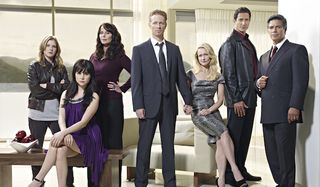
Science fiction and television should, technically speaking, be in perfect harmony. Science fiction deals with what-if scenarios, which have played out beautifully in such classic pulp science magazine as Galaxy, Astounding Science Fiction and Fantasy & Science Fiction. Television, on the other hand, thrives when it exploits serial storytelling, and is perfect for the anthology series.
Why then, are so many science fiction shows cancelled?
It depends. You can easily cite low ratings, or perhaps it’s just not a good fit for the network. Other times, maybe it just wasn’t a good idea to begin with (see The Twilight Zone revival on UPN). Either way, it’s a mystery. It’s inevitable. It’s frustrating at times. But some shows were so good – or at least promising – they didn’t even have a fighting chance to morph into something truly great.
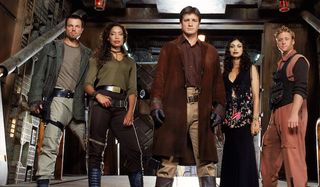
Firefly (2002-2003)
Joss Whedon’s space Western mash-up had all the right sci-fi components: cool extrapolation, an intriguing world, and an evil empire to fight against. Unfortunately, the folks over at Fox decided to ax it. After 14 episodes, and a “Save Firefly" campaign, Malcolm Reynolds and his crew got the big screen treatment with the near perfect film Serenity. Firefly has lived on in other mediums, notably comics.
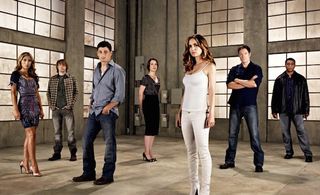
Dollhouse (2009-2010)
Another Whedon show. Featuring Eliza Dushku (Faith, from Buffy the Vampire Slayer) as Echo, a beautiful woman who has chosen to live as a “doll” with programmable memories; there was nothing like it on network TV. It dealt with some interesting sociological issues, such as human rights, sex, and identity. Now that Whedon is busy in the Marvel Cinematic Universe, and other projects, Dollhouse will likely be his final series as showrunner.
CINEMABLEND NEWSLETTER
Your Daily Blend of Entertainment News
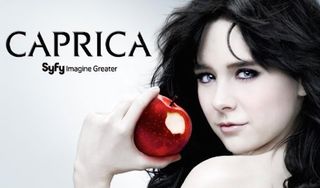
Caprica (2009-2010)
This Battlestar Galactica spin-off came with a lot of high expectations, and unfortunately, critics and fans alike didn’t warm up to the series as quickly as they had with Battlestar. Maybe the prequel thing wasn’t really compelling enough (depicting the birth of the Cylons starting with a young girl’s death on Caprica). Or maybe its slow, methodical storytelling might have been too meandering for SyFy Channel audiences. The good news is that the cast and crew were given enough of a notice that Caprica at least has a beginning, a middle, and an end.
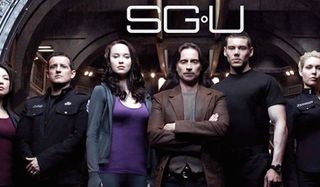
Stargate Universe (2009-2011)
Did we really need another Stargate spinoff? No. Of course not. But Stargate Universe had incredible production values, and unlike the other series, Stargate Universe wasn’t about jumping to other worlds or parallel dimensions, it was about the crew finding its way back to Earth. That’s what should have resonated with audiences. Sadly, SyFy Channel decided to ground it after two seasons.
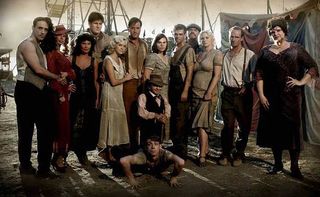
Carnivale (2003-2005)
This moody, Depression-era drama about a messiah figure, Ben Hawkins (Nick Stahl), and the darkly twisted minister, Brother Justin Crowe (Clancy Brown), was trippy, Lynchian, and gleefully disturbing. The war between heaven and hell had never been shot so beautifully. HBO played up the traveling circus bit for the mainstream audience, but Carnivale, which might not have had robots, spaceships, or been set in the future, is sci-fi in that it asked what if the second coming really happened? This was before True Blood and Game of Thrones. Carnivale might have led the way for HBO to really dive into science fiction/fantasy programming. Unfortunately, Carnivale left us hanging in its season two finale with too many unanswered questions.
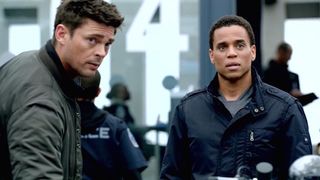
Almost Human (2013)
If you wanted to see what an Isaac Asimov TV series would have looked like in the 21st century, Almost Human almost managed to bring all the nuance of a world with robots to the forefront. And while it’s actually not based on an Asimov book or concept, Almost Human carried the spirit of Asimov’s work. Also, you had an African-American (Michael Ealy) in a co-staring role as the robot, and Karl Urban (Dr. McCoy from Abram’s Star Trek reboot; he also produced the show) as his partner. Despite the lend of a J.J. Abrams producing credit, Fox decided to let this one go. On Fox, ratings are king, and Almost Human pretty much fell to its death.
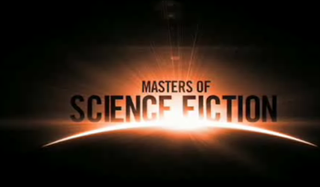
Masters of Science Fiction (2007)
Masters of Science Fiction wanted to do for science fiction TV television what Showtime’s Masters of Horror did for the genre – show that you can be intensely true to the spirit of the genre on the small screen. The production values were fantastic; the storytelling, intriguing. They drew from short stories by Robert A. Heinlein, Robert Sheckley, Harlan Ellison and others. The cast included such notable names as Stephen Hawking (host), John Hurt, Malcolm McDowell, Terry ‘O Quinn, Judy Davis and others. In the case of ABC, they simply didn’t want to move forward with a full series. Bottom line: Anthologies, especially science fiction anthologies, are tough to sustain on television.
Most Popular







